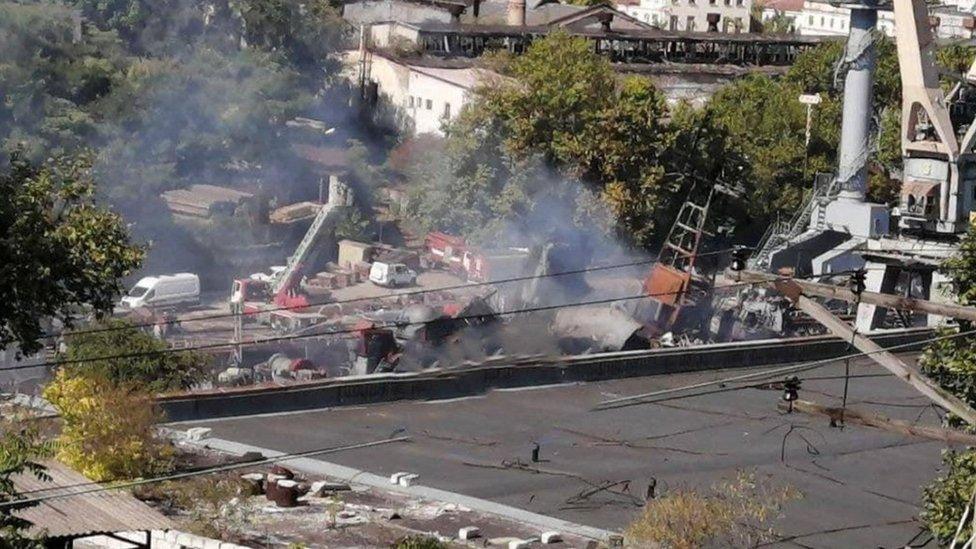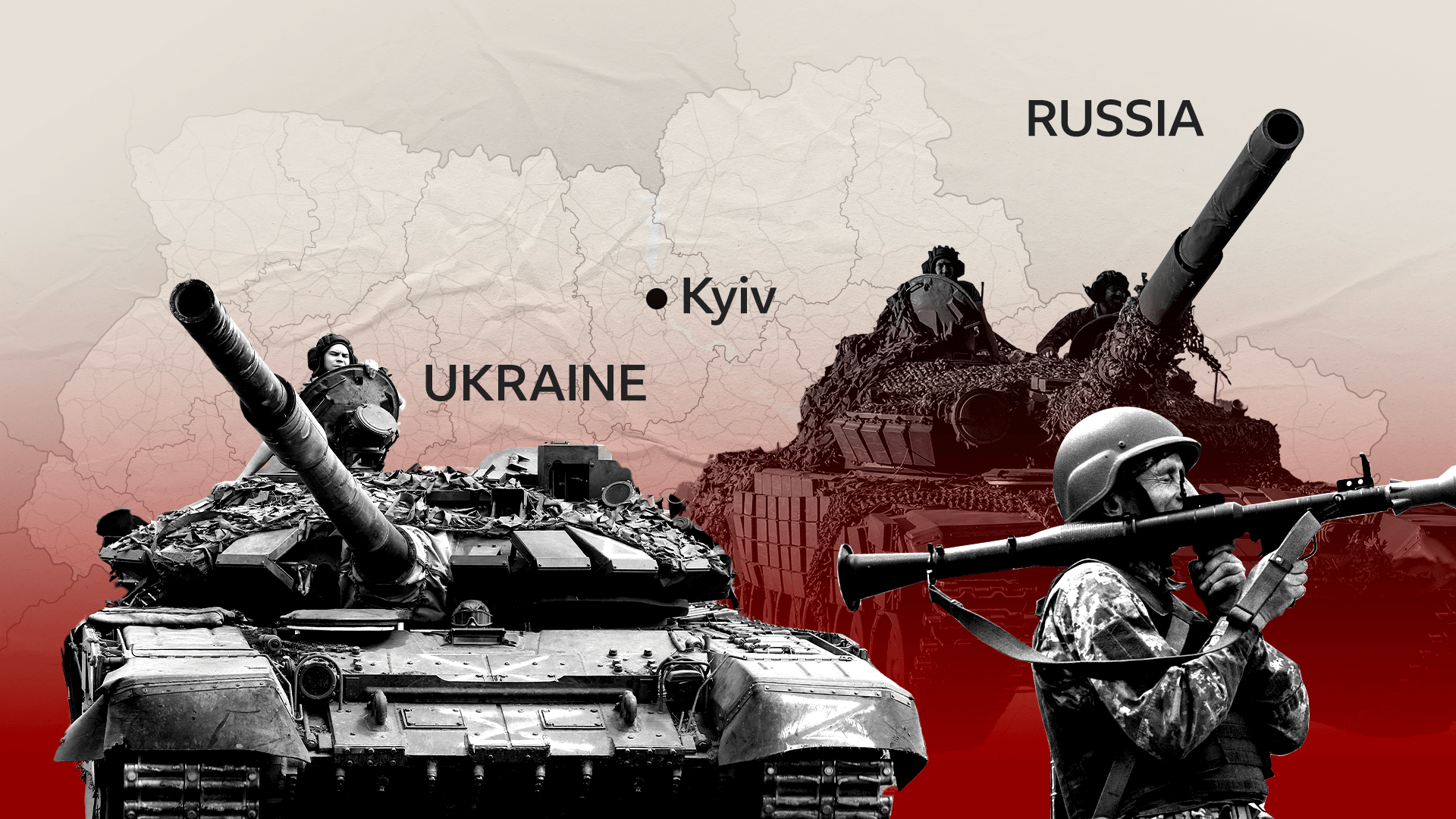Russia seeks to rejoin UN's human rights council
- Published
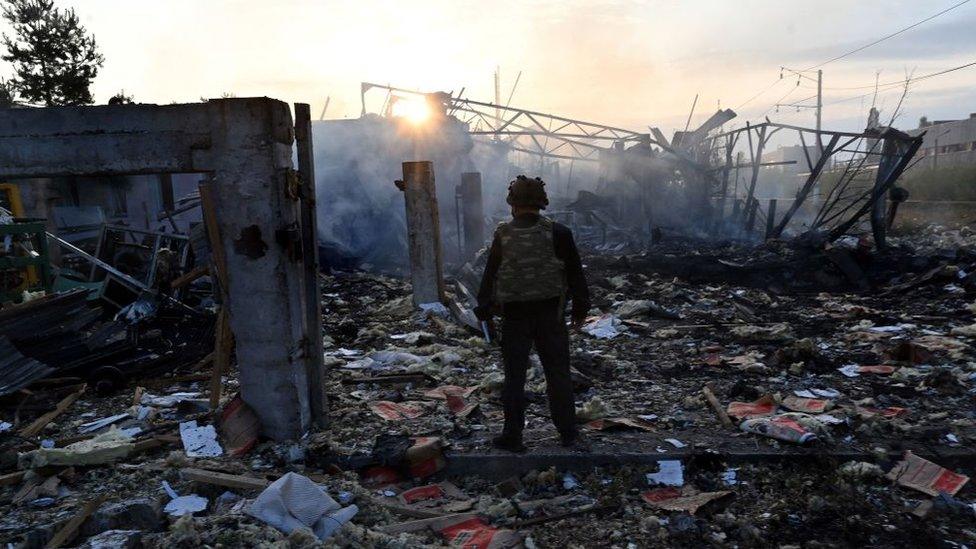
Russia is seeking to rejoin the United Nations human rights council in an election that will be seen as a key test of its international standing.
It was expelled from the UN's pre-eminent human rights body last April after its forces invaded Ukraine.
But now Russian diplomats are seeking to get their country re-elected to the council for a fresh three-year term.
The BBC has obtained a copy of the position paper Russia is circulating to UN members asking for their support.
The vote will take place next month.
In the document seen by the BBC, Russia promises to find "adequate solutions for human rights issues" and seeks to stop the council becoming an "instrument which serves political wills of one group of countries", understood to be a reference to the West.
Diplomats said Russia was hoping to regain some international credibility after being accused of human rights abuses in Ukraine and within its own borders.
The latest evidence of those abuses was presented to the human rights council on Monday in a report from its Commission of Inquiry on Ukraine.
Erik Mose, chair of the commission, said there was continuing evidence of war crimes, external including torture, rape and attacks on civilians.
A separate report two weeks ago by the UN's special rapporteur for Russia, Mariana Katzarova said the human rights situation in Russia had also "significantly deteriorated", external, with critics of the invasion subjected to arbitrary arrest, torture and ill treatment.
The UN human rights council is based in Geneva and has 47 members, each elected for a three-year term.
In the next elections, due on 10 October, Russia will compete with Albania and Bulgaria for the two seats on the council reserved for central and eastern European countries.
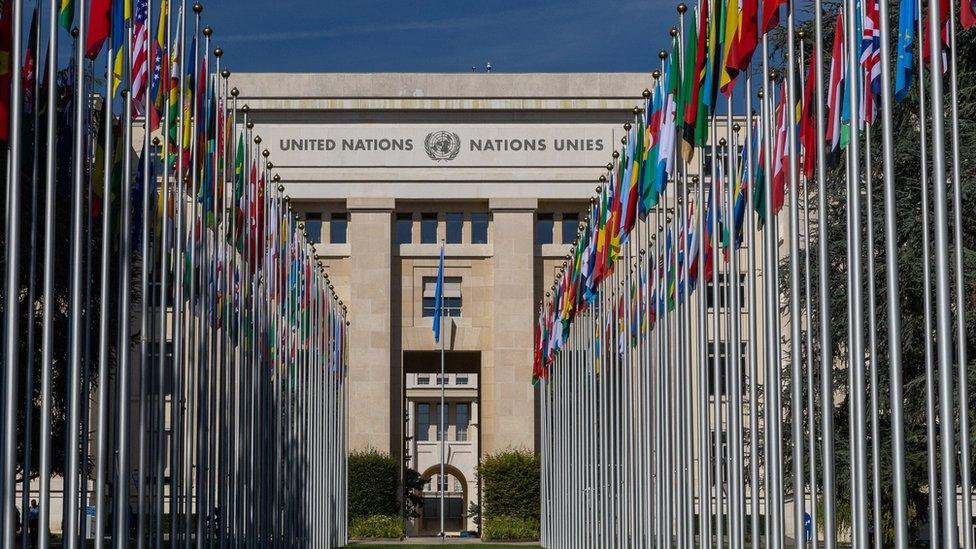
The Alley of the Flags at the United Nations HQ in Geneva, where the Human Rights Council meets
The vote will involve all 193 members of the UN general assembly in New York. Diplomats there said Russia was campaigning aggressively, offering small countries grain and arms in return for their votes.
As such, they said it was entirely possible Russia could get back onto the council.
The Russian position paper - circulated at the UN - says it wants to "promote principles of cooperation and strengthening of constructive mutually respectful dialogue in the council in order to find adequate solutions for human rights issues".
Its core pitch is that Russia would use its membership "to prevent the increasing trend of turning the HRC into an instrument which serves the political will of one group of countries". It said it does not want that group "punishing non-loyal governments for their independent and external policy".
Russia was suspended from the Human Rights Council in April 2022 with 93 members of the UN general assembly voting in favour, 24 against and 58 abstaining. In its position paper, Russia blames "the United States and its allies" for it losing membership.
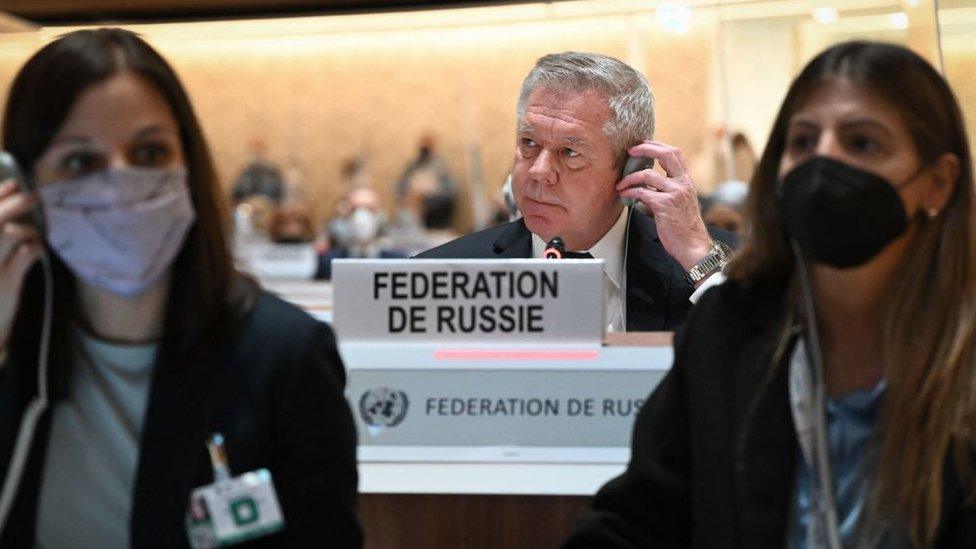
Russian ambassador Gennady Gatilov at a session of the UN Human Rights Council before Russia was suspended
A report this month, external by three campaign groups - UN Watch, the Human Rights Foundation and the Raoul Wallenberg Center for Human Rights - concluded Russia was "unqualified" for membership of the HRC.
"Re-electing Russia to the council now, while its war on Ukraine is still ongoing, would be counterproductive for human rights and would send a message that the UN is not serious about holding Russia accountable for its crimes in Ukraine," the report said.
The UK said it "strongly opposes" Russia's bid to rejoin the Human Rights Council.
A Foreign Office spokesperson said: "Widespread evidence of Russia's human rights abuses and violations in Ukraine and against its own citizens, including those highlighted by the UN's special rapporteur on Russia just last week, demonstrates Russia's complete contempt for the work of the council."
The shadow foreign secretary, David Lammy, said Russia had committed atrocities in Ukraine, its leader had been indicted for war crimes by the International Criminal Court and had shown utter contempt for the UN Charter.
"The idea that Russia could return to the Human Rights Council is an affront to the very concept of human rights and a dangerous backwards step that would damage its credibility," he said. "The government should work intensively with countries who have abstained in the past to make the case that the essential values of the UN must be upheld."
The BBC approached the Russian mission at the UN for comment.
Related topics
- Published25 September 2023
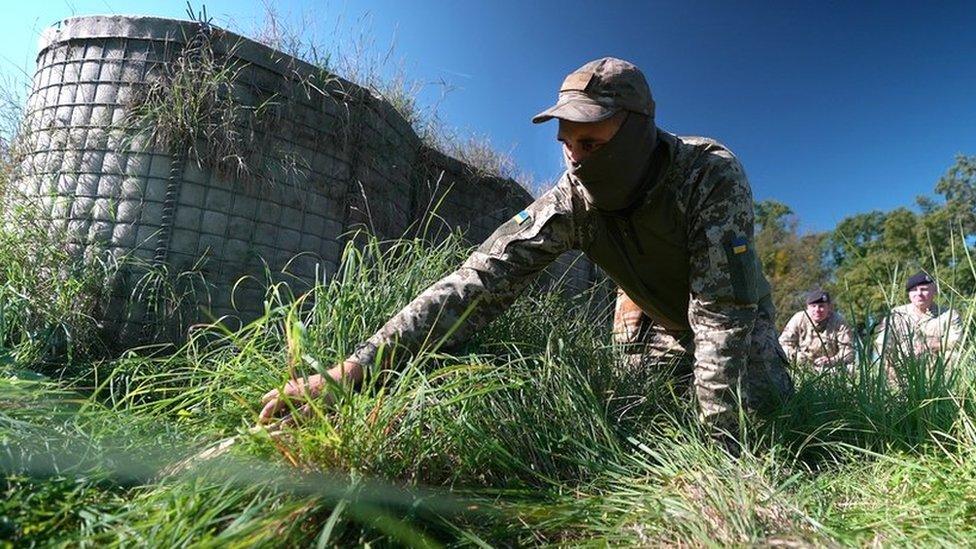
- Published18 September 2023
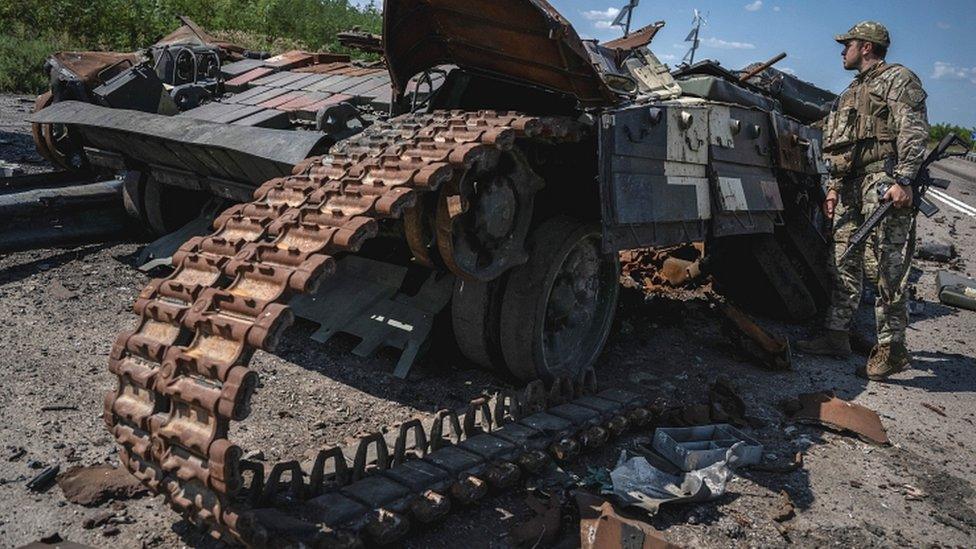
- Published18 September 2023
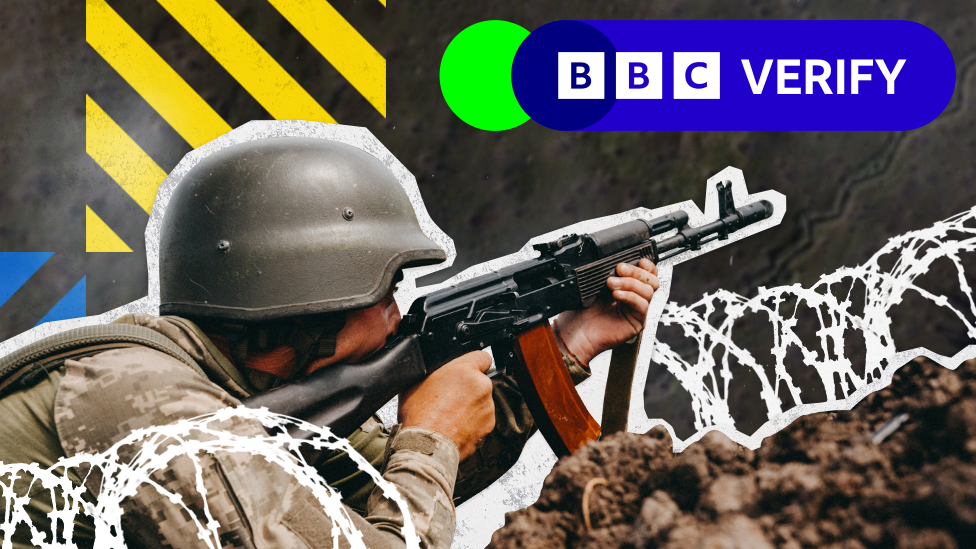
- Published16 September 2023
